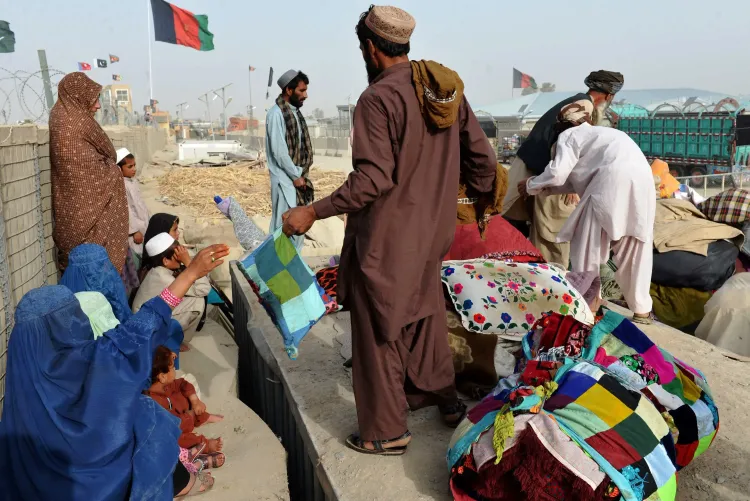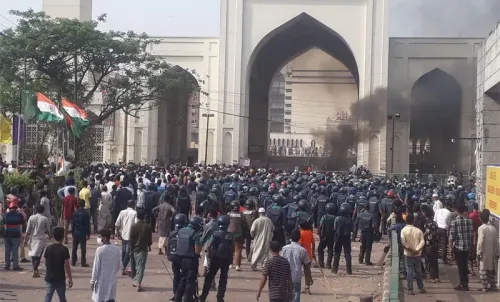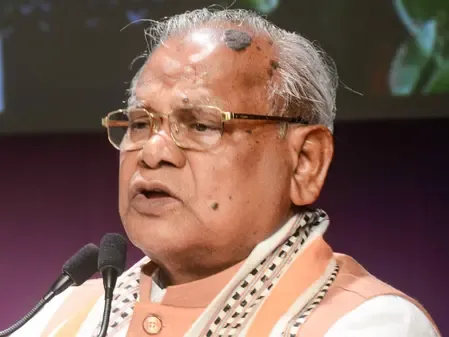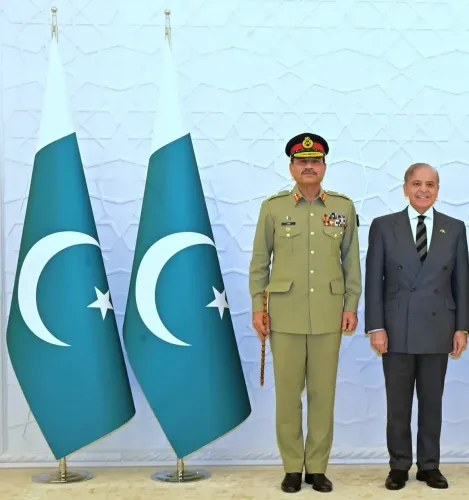How Can the Global Community Support the Repatriation of Afghan Refugees from Pakistan?

Synopsis
Key Takeaways
- The JSMM leader urges for responsible repatriation of Afghan refugees.
- Concerns about demographic changes in Sindh are highlighted.
- Afghans' settlement in Sindh is viewed as a strategic state policy.
- Burfat emphasizes humanitarian support for Afghan families.
- International community support is crucial for addressing these issues.
Berlin, Oct 23 (NationPress) Shafi Burfat, the Chairman of the Jeay Sindh Muttahida Mahaz (JSMM), has urged the international community to ensure a responsible process of repatriation and rehabilitation for Afghan refugees from Pakistan's Sindh province back to Afghanistan, emphasizing the need for global support.
Burfat highlighted that the significant influx of Afghan refugees, although stemming from a humanitarian crisis, has raised genuine demographic and political issues for the Sindh province.
“Sindh, which has long been subjugated within the artificial and militarized framework of Pakistan, has endured political oppression, economic exploitation, and the denial of its national rights by the Punjabi-imperialist dominated establishment. The settlement of Afghan refugees was not simply a humanitarian initiative; it represented a concerted state strategy to modify Sindh's demographic landscape and undermine the political stature of the native Sindhi populace,” Burfat expressed on X.
He emphasized that despite existing worries, the Sindhi people have not resisted the arrival of Afghan refugees. Out of humanitarian compassion and acknowledgment of the tragic consequences of war and displacement, he stated that Sindh has accepted their presence with the hope that refugees would be evenly distributed across Pakistan, particularly in Khyber Pakhtunkhwa, where the Pashtun and Afghan communities share linguistic, ethnic, and cultural ties.
However, Burfat pointed out that, contrary to this anticipation, Pakistani authorities have intentionally refrained from resettling Afghans in Punjab province, instead placing approximately 80 percent of Afghan refugees in Sindh, particularly in Karachi. He described this as a strategic maneuver aimed at destabilizing Sindh’s demographic equilibrium, exacerbating the process of colonization, and further oppressing the province politically, socially, and economically.
“We want to clarify that the Sindhi nation holds no animosity towards Afghan families. Our concerns arise from the structural oppression we endure under Pakistani occupation and the demographic engineering tactics employed against us. We fully advocate for an orderly, dignified, and internationally supported repatriation that benefits both Afghan families and the Sindhi nation,” Burfat asserted.
“Additionally, we acknowledge that Afghan children born and raised in Sindh, who have learned the Sindhi language and integrated culturally, will be respected and granted Sindhudesh nationality after the liberation of Sindh, as a sign of human solidarity and shared history,” he noted.
The Sindhi leader called upon NATO, the United Nations, and allied governments to honor their moral and political responsibilities by endorsing the repatriation of Afghan refugees.
“This action will reinforce Afghan sovereignty, enhance international relations, and address the legitimate demographic concerns of the Sindhi nation, which continues to endure colonial domination and political marginalization within Pakistan. We urge you to act with accountability, justice, and respect for the rights of all nations and peoples,” Burfat emphasized.










